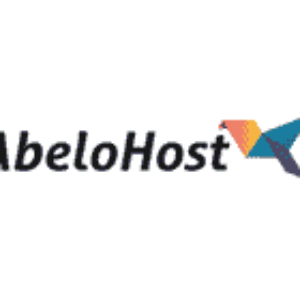Shared Hosting
Shared hosting is one of the most popular and cost-effective ways to host websites, particularly for small businesses, blogs, and startups. As more and more businesses establish their online presence, understanding the concept of shared hosting is critical for anyone looking to build a website. But what exactly is shared hosting? How does it work, and why should you consider it for your business? In this in-depth article, we will explore shared hosting from every angle—its advantages, disadvantages, technical workings, and why it could be the perfect solution for your website hosting needs.
Introduction: The Surge in Website Hosting Demands
In today’s digital world, having a website is no longer optional—it’s mandatory. With over 1.8 billion websites on the internet today, the demand for affordable, efficient, and easy-to-manage hosting solutions has exploded. This is where shared hosting comes in. It’s affordable, beginner-friendly, and suitable for websites that don’t require complex resources or extremely high traffic.
But how does shared hosting stack up against other hosting types, and why is it often the go-to choice for new site owners? In this article, we will answer these questions and more. Let’s dive into shared hosting, dissect its components, and guide you through the process of choosing the right hosting plan for your website.
What is Shared Hosting?
Shared hosting is a type of web hosting where multiple websites are hosted on the same server. These websites share the server’s resources, including CPU, RAM, and disk space. It’s like living in an apartment building where everyone shares the building’s facilities (e.g., the elevator, parking spaces, etc.), but each tenant has their own personal space (the apartment).
In essence, shared hosting allows numerous websites to operate from a single server. This structure helps keep costs low, making shared hosting one of the most affordable hosting solutions on the market. It’s ideal for websites that receive moderate traffic, such as small businesses, personal blogs, and portfolios.
How Does Shared Hosting Work?
In shared hosting, a single server is split into multiple partitions, with each partition allocated to a specific user or website. The server’s total resources are divided among these users, and they collectively share processing power, memory, and bandwidth.
Here’s a simplified breakdown of how shared hosting works:
- Server Configuration: The hosting provider configures a server and installs all necessary software to support multiple websites.
- Partitioning: Each website is assigned a specific portion of the server’s disk space, memory, and bandwidth. However, all websites share the server’s resources.
- Shared Resources: If one website experiences a traffic surge and uses more resources, it may slow down the performance of other websites on the same server. This is one of the drawbacks of shared hosting.
- Access and Maintenance: Users get access to their website’s data and files via a control panel (e.g., cPanel) but do not have direct access to the server. The hosting provider manages server maintenance, security updates, and technical issues.
Benefits of Shared Hosting
Shared hosting offers a range of benefits that make it attractive to new and small website owners:
1. Affordability
One of the primary reasons shared hosting is so popular is its low cost. Since multiple websites share the same server, the hosting provider can offer services at a much cheaper rate compared to other hosting types like dedicated hosting or VPS hosting. This makes shared hosting a great option for businesses and individuals on a tight budget.
2. Easy to Use
Most shared hosting providers offer user-friendly control panels like cPanel or Plesk, which allow users to easily manage their website without needing any technical expertise. With just a few clicks, you can set up email accounts, manage domains, install WordPress, and perform other essential tasks.
3. Maintenance-Free
With shared hosting, the hosting provider takes care of server maintenance, including software updates, security patches, and backups. This hands-off approach lets you focus on managing your website content rather than worrying about server issues.
4. Scalability
While shared hosting may not be suitable for large websites or those with high traffic volumes, it can be a good starting point for small websites that plan to grow. Many shared hosting plans allow users to upgrade to higher tiers with more resources or to switch to VPS or dedicated hosting as their website expands.
Disadvantages of Shared Hosting
While shared hosting is affordable and user-friendly, it does come with certain limitations. Here are some of the main disadvantages to consider:
1. Limited Resources
Since you’re sharing server resources with other websites, there is a limit to how much CPU, RAM, and disk space you can use. If your website grows quickly or experiences a surge in traffic, you might notice slower performance or even downtime.
2. Performance Issues
If one of the websites on your server experiences a traffic spike or a resource-intensive task, it can affect the performance of other websites on the same server. This is known as the “bad neighbor effect,” where the actions of one website can negatively impact others.
3. Less Control
Shared hosting does not provide users with root access to the server, meaning you cannot modify server settings or install custom software. For users who need more flexibility and control, VPS or dedicated hosting might be a better option.
4. Security Risks
Because multiple websites are hosted on the same server, shared hosting can pose certain security risks. If one website on the server is compromised, it could potentially affect other websites on the same server. However, most hosting providers implement strict security measures to minimize this risk.
Shared Hosting vs. VPS Hosting: Which is Better?
When deciding on a hosting solution, many users weigh the pros and cons of shared hosting versus VPS (Virtual Private Server) hosting. Let’s explore the key differences between these two options.
Shared Hosting
- Cost: Shared hosting is significantly cheaper than VPS hosting because you’re sharing resources with other users.
- Resources: Limited resources are shared among all users on the server.
- Control: Minimal control over server settings; typically managed through a control panel.
- Security: While generally secure, there is a greater risk of being affected by other users on the server.
VPS Hosting
- Cost: VPS hosting is more expensive but offers more control and resources.
- Resources: Each user gets a dedicated portion of the server’s resources, resulting in better performance and scalability.
- Control: Full control over server settings, including the ability to install custom software and modify configurations.
- Security: More secure than shared hosting because users are isolated from one another.
Which One Should You Choose?
Shared hosting is ideal for small websites with low to moderate traffic, such as blogs, personal portfolios, and small businesses. If your website is just getting started and you don’t expect significant traffic or complex functionality, shared hosting is a great, cost-effective solution.
VPS hosting, on the other hand, is better suited for growing websites that need more resources, customization, and scalability. If your website requires more power, security, or flexibility, investing in a VPS hosting plan may be worth the higher price.
Who Should Use Shared Hosting?
Shared hosting is the perfect solution for a variety of website owners, including:
1. Personal Blogs and Portfolios
If you’re a blogger, freelancer, or artist looking to showcase your work online, shared hosting offers the tools and resources you need at a price that won’t break the bank. You can easily set up a WordPress or Joomla site, manage your content, and even integrate your social media.
2. Small Businesses
For small businesses that need a simple website to display products, services, or company information, shared hosting provides reliability and affordability. Most shared hosting plans come with email accounts, which are essential for professional communication.
3. Startups and Entrepreneurs
Shared hosting is an excellent option for startups and entrepreneurs who need a low-cost hosting solution to get their business online. Whether you’re launching a new eCommerce store or promoting a new product, shared hosting allows you to quickly build your website and start attracting customers.
4. Nonprofits and Community Organizations
Organizations with tight budgets, such as nonprofits, can benefit greatly from shared hosting. It allows them to have a professional online presence without the overhead costs associated with more advanced hosting solutions.
How to Choose the Best Shared Hosting Provider
When it comes to selecting a shared hosting provider, there are several important factors to consider. Here are some tips to help you make the best choice:
1. Uptime Guarantee
Ensure that the hosting provider offers an uptime guarantee of at least 99.9%. This ensures that your website will be online and accessible to users most of the time.
2. Customer Support
Look for hosting providers that offer 24/7 customer support via live chat, phone, or email. In the event that you run into technical issues, responsive customer support is invaluable.
3. Features and Resources
Make sure the hosting plan you choose includes all the features and resources your website will need. This might include email accounts, SSL certificates, automatic backups, and 1-click software installations like WordPress.
Is Shared Hosting Right for You?
The answer to whether shared hosting is right for you depends largely on the needs of your website. If you’re running a small website with moderate traffic and don’t require advanced server settings or a high level of security, shared hosting is an excellent choice.
However, if you anticipate needing more resources, better performance, or more control over your hosting environment, you may want to consider upgrading to VPS hosting or dedicated hosting as your website grows.
Conclusion: Is Shared Hosting the Right Choice for You?
In conclusion, shared hosting is one of the best options for small websites, personal projects, and new businesses. Its low cost, ease of use, and managed maintenance make it an attractive choice for those just starting out online. However, it does come with some limitations, especially in terms of resources and performance.
If you’re expecting to grow rapidly or need greater control, VPS hosting or dedicated servers may be worth considering. Yet for most entry-level websites, shared hosting provides all the tools you need to launch and manage your site with minimal hassle and at a fraction of the cost.
Frequently Asked Questions (FAQ)
1. What is the difference between shared hosting and dedicated hosting?
Shared hosting involves multiple websites sharing the same server and resources, whereas dedicated hosting gives one website full control and exclusive access to an entire server.
2. Is shared hosting secure enough for my website?
While shared hosting is generally secure, there’s a higher risk due to multiple users on the same server. Reputable hosting providers implement various security measures to mitigate these risks.
3. Can I upgrade from shared hosting to VPS hosting?
Yes, most hosting providers offer an easy upgrade path from shared hosting to VPS hosting or other more advanced hosting solutions.
4. Will other websites on the server affect my site’s performance?
Yes, if one website on the shared server experiences a traffic surge, it could potentially slow down your website. This is one of the downsides of shared hosting.
5. How many websites can I host on a shared hosting plan?
Most shared hosting plans allow you to host multiple websites, but the number will depend on the specific plan you choose.
6. Is shared hosting suitable for eCommerce websites?
Shared hosting can be used for small eCommerce websites, but for larger stores with heavy traffic, VPS or dedicated hosting might be a better choice.
7. Can I use shared hosting for WordPress?
Yes, most shared hosting providers offer 1-click installations for WordPress, making it easy to set up and manage your WordPress site.
8. Does shared hosting include backups?
Some shared hosting providers offer automatic backups, but it’s important to check with your provider to see if this feature is included.
9. Is shared hosting scalable?
Shared hosting is only partially scalable. You can usually upgrade your hosting plan within the shared hosting environment, but eventually, you may need to switch to a VPS or dedicated server for higher traffic websites.
10. How do I know if my website has outgrown shared hosting?
If your website is experiencing slow loading times, frequent downtime, or you’re receiving warnings about resource usage, it might be time to upgrade from shared hosting to VPS or dedicated hosting.
Showing 1–12 of 16 results












